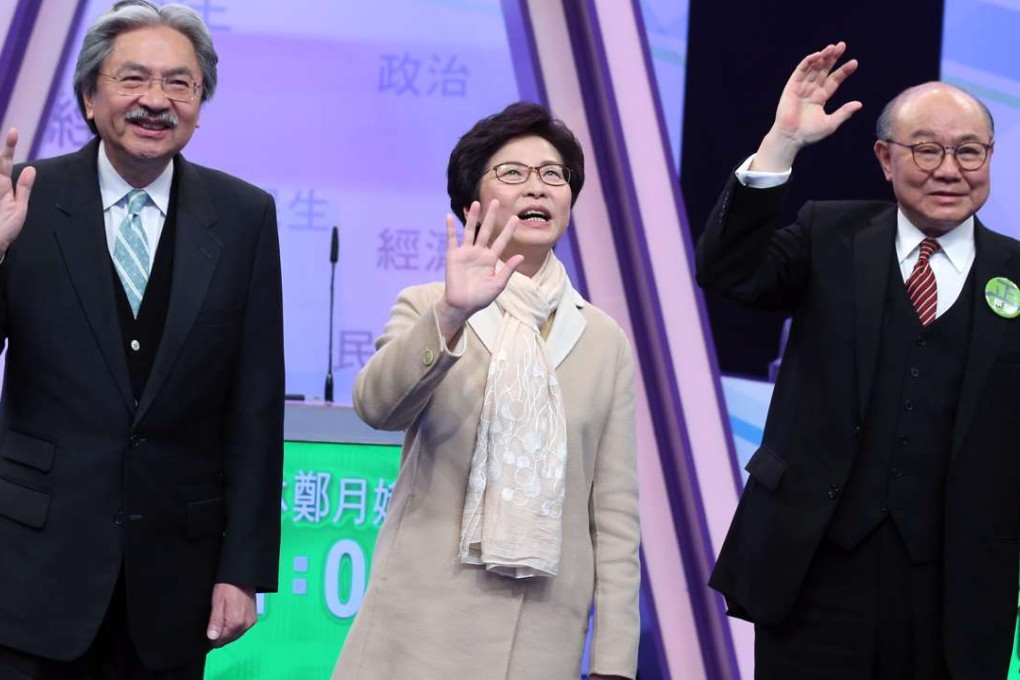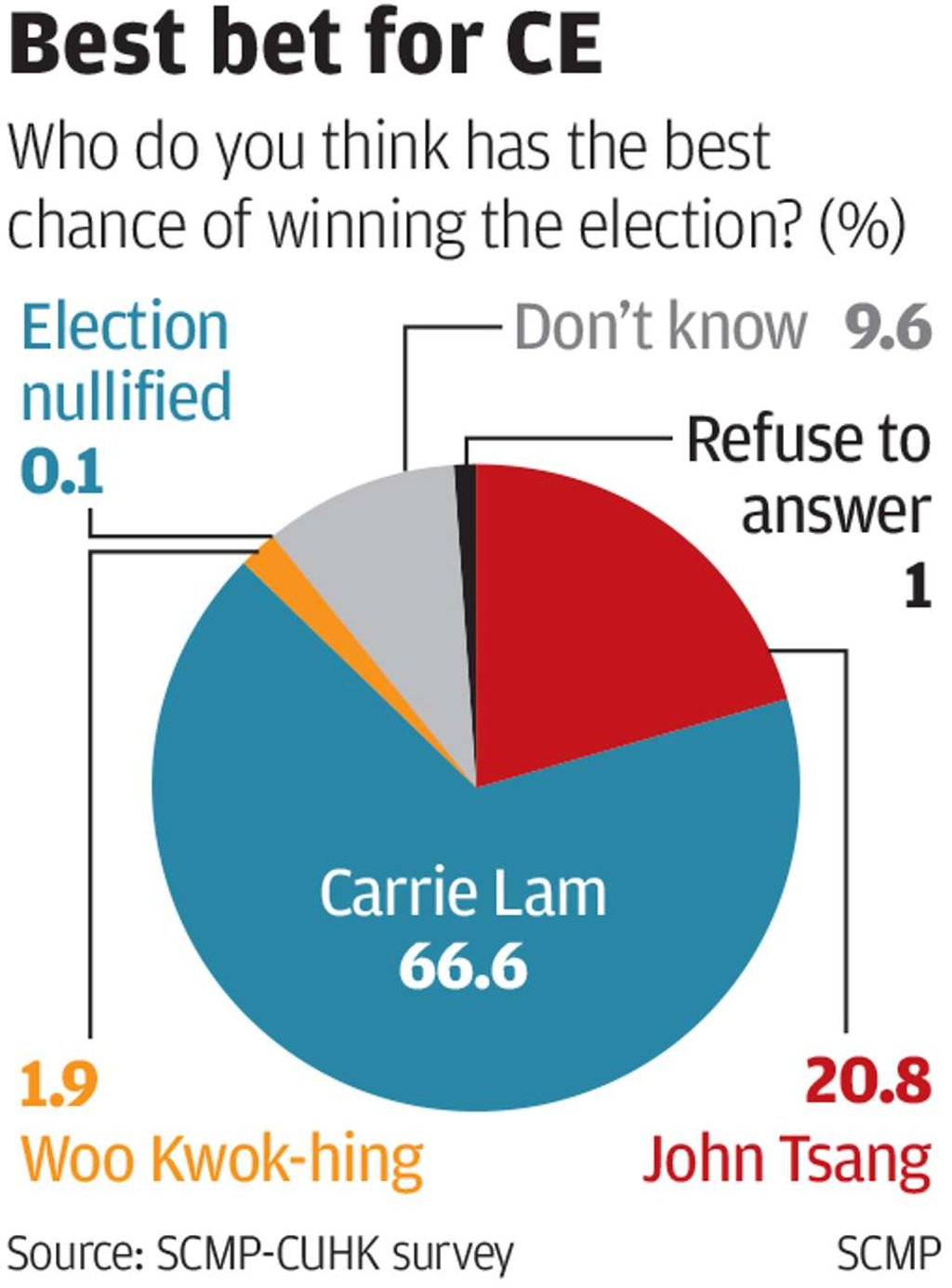Exclusive | John Tsang extends poll lead over Carrie Lam in Hong Kong leadership race
But two-thirds recognise the former chief secretary is more likely to win, while 63 per cent say a less popular chief executive will have problems governing

John Tsang Chun-wah has widened his lead over arch-rival Carrie Lam Cheng Yuet-ngor to more than 17 percentage points in the latest survey commissioned by the South China Morning Post.
Some 63 per cent of the 1,009 respondents interviewed from last Wednesday to Monday believed a less popular chief executive would face problems in governing Hong Kong.
But about two-thirds recognised that Lam, the former chief secretary who is seen as Beijing’s preferred candidate, stood a higher chance of landing the top job in the March 26 election.
Polling in the third such survey by the Post began a week after the nomination period for the chief executive race closed on March 1.
Chinese University’s Centre for Communication and Public Opinion Survey found that 67 per cent of respondents regarded the housing affordability problem as the top priority for the city’s next leader, followed by 58.8 per cent who picked mending rifts in the community.
